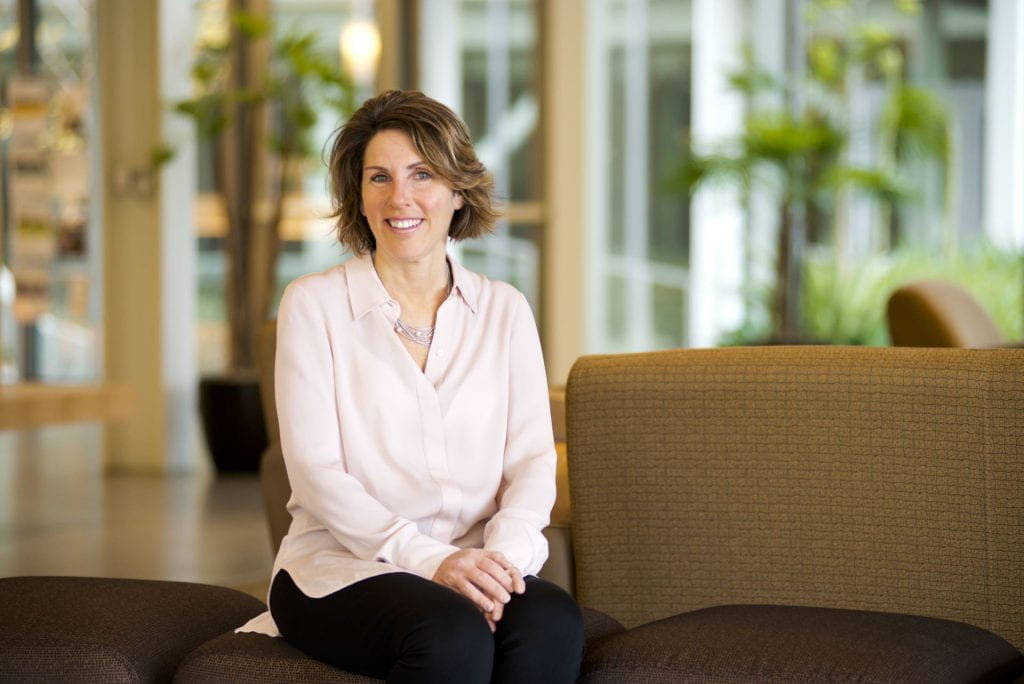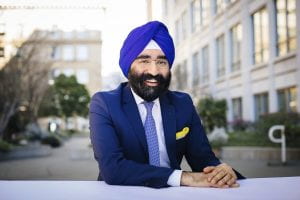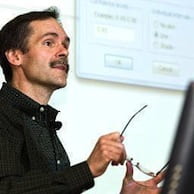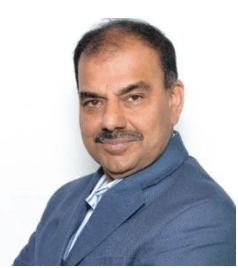October 1, 2021
Investors are Waking Up to Climate Risk
Abstract:
The severity of this summer’s extreme weather events is creating a new sense of urgency for action to achieve a net-zero global economy by mid-century to avoid the most severe impacts of climate change. To achieve this, global carbon emissions must decline rapidly from their current levels. The changes required have huge implications for the energy sector, which is already facing mounting risks. Sensing a sea change in the importance of understanding climate risk in assessing firm valuation, institutional investors, large blockholder asset managers, and other investment advisors are clamoring for more detailed sustainability information and climate friendly stocks. Amy Myers Jaffe discusses the change in strategies across the energy investment landscape from private equity firms to large asset owners to the energy companies themselves and what it means for the future of the planet.
Speaker

Dr. Amy Jaffee, Research Professor and Managing Director of the Climate Policy Lab The Fletcher School at Tufts University
Amy Myers Jaffe is author of Energy’s Digital Future: Harnessing Innovation for American Resilience and National Security and managing director of the Climate Policy Lab and a research professor at The Fletcher School at Tufts University. A leading expert on global energy policy and sustainability, Jaffe has previously served as the David M. Rubenstein Senior Fellow for Energy and the Environment at the Council on Foreign Relations and Executive Director for energy and sustainability at the University of California, Davis, where she led research on low or zero carbon fuels and transportation policy. Jaffe has also served as senior advisor for sustainability at the Office of the Chief Investment Officer at the University of California, Regents, assisting with the design and launch of their sustainable investing strategy. She currently is co-chair of the steering committee of the Women in Energy Initiative at Columbia University’s Center on Global Energy Policy. Jaffe has taught international energy policy, business, and sustainability courses at Tufts University, Rice University, University of California Davis and Yale University. Jaffe is widely published, including as co-author of Oil, Dollars, Debt and Crises: The Global Curse of Black Gold, with Dr. Mahmoud El-Gamal. A frequent media commentator, Jaffe was 2020 president of the US Association for Energy Economics and holds a Senior Fellow award from that organization for her career contributions to the field of energy economics. She is a member of the Global Future Council on Net Zero Transition at the World Economic Forum (Davos) and a member of the Council on Foreign Relations.
Moderator

Jagdeep Bachher, Chief Investment Officer, University of California Office of the President
Jagdeep Singh Bachher is the University of California’s chief investment officer, responsible for managing the UC retirement, endowment and working capital investment products with $170 billion in assets under management. Before joining the UC system in 2014, Bachher was an executive vice president of venture and innovation for one of Canada’s large investment fund managers. He was with Alberta Investment Management Corp (AIMCo), based in Edmonton since 2009. He also served as the corporation’s deputy chief investment officer and chief operating officer. Prior to his position at AIMCo, Bachher served as president at JH Investments (Delaware) LLC and worked in the U.S. Wealth Management, Canadian, and Investments divisions of Manulife Financial and John Hancock. Before joining Manulife in 2004, he was an entrepreneur. Bachher received his Ph.D. and Master’s degrees in management sciences and B.A.Sc. degree in mechanical engineering from the University of Waterloo. He is the vice chair of the University of Waterloo Board of Governors and has been a champion for change in the investment business and gained an international reputation as an innovator.
March 5, 2021
What Explains the COVID-19 Stock Market?
Watch the video.
Abstract:
What explains stock market behavior in the early weeks of the coronavirus pandemic? Estimates from a dynamic asset pricing model point to wild fluctuation in the pricing of stock market risk, driven by shifts in risk aversion or sentiment. We find further evidence that the Federal Reserve played a role in these fluctuations, via a series of announcements outlining unprecedented steps to provide several trillion dollars in loans to support the economy. As of July 31 of 2020, however, only a tiny fraction of the credit that the central bank announced it stood ready to provide in early April had been extended, reinforcing the conclusion that market movements during COVID-19 have been more reflective of sentiment than substance.
Speaker

Sydney Ludvigson, Silver Professor of Economics, New York University, and Co-director, NBER Program on Asset Pricing
Sydney Ludvigson is Julius Silver, Roslyn S. Silver, and Enid Silver Winslow Professor of Economics at New York University, and a Co-Director of the National Bureau of Economic Research Asset Pricing Program. Her research centers on the interplay between asset markets and macroeconomic activity, with recent applications to the pricing and risk premia of stock, bond, and housing markets, the role of heterogeneity and wealth inequality in housing and stock market valuations, and the dynamic causal effects of uncertainty for business cycle fluctuations.
Moderator

Galina Hale is a Professor of Economics at UC Santa Cruz and a Research Advisor (currently on leave) at the Federal Reserve Bank of San Francisco. Previously she was on the economics faculty at Yale University. She also taught as a visiting faculty at Stanford and UC Berkeley. Galina began to study economics in Russia, first in Moscow State University and then at the New Economic School. She briefly worked as a consultant for the Russian Ministry of Finance and as chief editor for a weekly newsletter of the Russian Central Bank. She received her PhD in economics from UC Berkeley.
January 29, 2021
Real-Time Real Economic Activity: Exiting the Great Recession and Entering the Pandemic Recession
Watch the video. Downloads
Abstract:
Exiting the Great Recession and entering the Pandemic Recession, we study the high-frequency real-activity signals provided by a leading nowcast, the ADS Index of Business Conditions produced and released in real time by the Federal Reserve Bank of Philadelphia. We track the evolution of real-time vintage beliefs and compare them to a later-vintage chronology. Entering the Pandemic Recession, real-time ADS plunges and then swings as its underlying economic indicators swing, but the ADS paths quickly converge to indicate a return to brisk positive growth by mid-May. We show, moreover, that the daily real activity path was extremely highly correlated with the daily COVID-19 path.
Speaker

Francis X. Diebold is Paul F. Miller, Jr. and E. Warren Shafer Miller Professor of Social Sciences, and Professor of Economics, Finance, and Statistics, University of Pennsylvania
Francis X. Diebold is Paul F. Miller, Jr. and E. Warren Shafer Miller Professor of Social Sciences, and Professor of Economics, Finance, and Statistics, University of Pennsylvania. He has held visiting appointments at Princeton, Chicago, Johns Hopkins, and NYU. His research focuses on predictive modeling in financial asset markets, macroeconomic fundamentals, climate change, and the interface. He has made well-known contributions to the measurement and modeling of asset-return volatility, business cycles, yield curves, and network connectedness. He has published more than 150 scientific papers and 8 books, and he is regularly ranked among globally most-cited economists.
Moderator

Satish Swamy is senior managing director for Global Rates at UC Investments, which he joined in 1998. His more than 20 years of investment industry experience have also included positions with Reuters, Lincoln Financial Group, and Analytic Investors. At UC Investments, which manages $154 billion in assets for the UC system, Swamy is a member of the leadership team and investment committee. He is also on the professional faculty at the Haas School of Business at UC Berkeley where he teaches an elective in Finance for MBA students. Swamy received his B.E.in electronics engineering from Bangalore University, a M.S. in electrical and computer engineering from University of Houston, and an M.B.A. in finance from University of Southern California, Marshall School of Business.
January 15, 2021
Violence and Economic Activity: Evidence from African American Inventors, 1870-1940.
Watch the Video.
Paper
Abstract:
Recent studies have examined the effect of political conflict and domestic terrorism on economic and political outcomes. This talk focuses on Dr. Cook’s paper using the rise in mass violence between 1870 and 1940 as a natural experiment for determining the impact of ethnic and political violence on economic activity, namely patenting. She finds that violent acts account for more than 1100 missing patents compared to 726 actual patents among African American inventors over this period. Valuable patents decline in response to major riots and segregation laws. Absence of the rule of law covaries with declines in patent productivity for white and black inventors, but this decline is significant only for African American inventors. Patenting responds positively to declines in violence. These findings imply that ethnic and political conflict may affect the level, direction, and quality of invention and economic growth over time.
Speaker

Lisa Cook, Professor of Economics and International Relations, Michigan State University
Dr. Lisa D. Cook is a Professor of Economics and International Relations at Michigan State University. As a Marshall Scholar, she received a second B.A. from Oxford University in Philosophy, Politics, and Economics. Dr. Cook earned a Ph.D. in economics from the University of California, Berkeley. Among her current research interests are economic growth and development, financial institutions and markets, innovation, and economic history. As a Senior Economist at the President’s Council of Economic Advisers during the 2011-2012 academic year, Dr. Cook worked on the euro zone, financial instruments, innovation, and entrepreneurship. She is currently Director of the American Economic Association Summer Training Program.
Moderator

Galina Hale is a Professor of Economics at UC Santa Cruz and a Research Advisor (currently on leave) at the Federal Reserve Bank of San Francisco. Previously she was on the economics faculty at Yale University. She also taught as a visiting faculty at Stanford and UC Berkeley. Galina began to study economics in Russia, first in Moscow State University and then at the New Economic School. She briefly worked as a consultant for the Russian Ministry of Finance and as chief editor for a weekly newsletter of the Russian Central Bank. She received her PhD in economics from UC Berkeley
December 4, 2020
Emerging Market Economies in the Covid-19 Crisis
Watch the Video
Abstract:
Professor Eichengreen will consider the position of emerging markets in light of the COVID crisis, focusing on debt problems but placing them in a broader perspective. Questions will include: why haven’t more emerging markets experienced severe debt-servicing problems so far? Should we be reassured that half a dozen middle income countries in Latin America and Asia have been able to tap international markets and issue new dollar bonds? If and when the debt crisis arrives, which countries will be hit hardest? What has the international policy community done in response? What more should it do?
Speaker
Barry Eichengreen, George C. Pardee and Helen N. Pardee Professor of Economics and Political Science, University of California, Berkeley
Barry Eichengreen is the George C. Pardee and Helen N. Pardee Professor of Economics and Professor of Political Science at the University of California, Berkeley, where he has taught since 1987. He is a Research Associate of the National Bureau of Economic Research (Cambridge, Massachusetts) and Research Fellow of the Centre for Economic Policy Research (London, England). In 1997-98 he was Senior Policy Advisor at the International Monetary Fund. He is a fellow of the American Academy of Arts and Sciences (class of 1997).
Professor Eichengreen has held Guggenhim and Fulbright Fellowships and been a fellow of the Center for Advanced Study in the Behavioral Sciences (Palo Alto) and the Institute for Advanced Study (Berlin). From 2004 to 2020 he served as convener of the Bellagio Group of academics and officials. He is a regular monthly columnist for Project Syndicate.
Moderator
Weishi (Grace) Gu is an associate professor at the Department of Economics at the University of California, Santa Cruz. A common thread of her research has been applying a dynamic stochastic equilibrium approach to international economics, macroeconomics and labor market, recognizing financial friction and other constraints. Grace’s research covers a range of issues including sovereign default, global imbalances, labor market search and switching. Prior to working at UCSC, she conducted research at Cornell University, IMF, Brookings, Federal Reserve Bank of Cleveland, and American Enterprise Institute.
November 27, 2020
No Talk
November 20, 2020
Advancing Women’s Digital Financial Inclusion
Watch the video.
Abstract:
Digital financial services have expanded opportunities for millions of women across the globe. Access to formal financial products can support women’s financial resilience as they are impacted by and recover from COVID-19 and the associated economic challenges. However, there remains much work to do to achieve gender equality in financial services. Approximately one billion women do not have formal financial services, due to persistent barriers in access to identification documents, mobile phones, digital skills, financial capability, as well as inappropriate products and more. This talk will discuss actions for public- and private-sector entities to build an enabling, resilient, and responsible digital financial infrastructure and ecosystem, and help close the gender gap in financial inclusion.
Speaker
Leora Klapper, Lead Economist, Finance and Private Sector Research Team, Development Research Group, World Bank
Leora Klapper, Lead Economist, Finance and Private Sector Research Team, Development Research Group, World Bank Leora Klapper is a Lead Economist in the Finance and Private Sector Research Team of the
Development Research Group at the World Bank. Her publications focus on corporate and household finance, fintech, banking, and entrepreneurship. Her current research studies the impact of digital financial services, especially for women. She is a founder of the Global Findex database, which measures how adults around the world save, borrow, make payments, and manage risk. Previously, she worked at the Board of Governors of the Federal Reserve System and Salomon Smith Barney. She holds a Ph.D. in Financial Economics from New York University Stern School of Business.
Moderator
Nirvikar Singh is currently Co-Director of the Center for Analytical Finance at UCSC, of which he was the founding Director. From 2010 to 2020, he held the Sarbjit Singh Aurora Chair of Sikh and Punjabi Studies at UCSC. He has previously directed the UCSC South Asian Studies Initiative. He has served as a member of the Advisory Group to the Finance Minister of India on G-20 matters, and Consultant to the Chief Economic Adviser, Ministry of Finance, Government of India. He is currently serving on the Expert Group on post-Covid-19 economic recovery formed by the Chief Minister of Punjab state in India.
November 13, 2020
Still the World’s Safe Haven? — Redesigning the U.S. Treasury Market After the COVID- 19 Crisis
Watch the video.
Paper & Slides
Abstract:
The secondary market for U.S. Treasuries became dysfunctional in March 2020, when the Covid-19 crisis triggered investor flows that overwhelmed intermediaries. Although the Fed was able to largely restore market liquidity through its unprecedented rate of Treasury purchases and other actions, the design of the Treasury market was revealed to be overdue for an upgrade. I propose a study of the costs and benefits of mandating the central clearing of Treasury transactions of all firms that are active in the market. Without a broad central clearing mandate, the size of the Treasury market will outstrip the capacity of dealers to safely intermediate the market on their own balance sheets, raising doubts over the safe-haven status of U.S. Treasuries and concerns over the cost to taxpayers of financing growing federal deficits.
Speaker
Darrell Duffie, Adams Distinguished Professor of Management and Professor of Finance, Stanford Graduate School of Business
Darrell Duffie is the Adams Distinguished Professor of Management and Professor of Finance at Stanford University’s Graduate School of Business and Professor by courtesy in the Department of Economics. Duffie is a Research Fellow of the National Bureau of Economic Research and a Fellow of the American Academy of Arts and Sciences. He was the 2009 president of the American Finance Association. Duffie is an independent director on the board of U.S. Dimensional Funds. He chaired the Financial Stability Board’s Market Participants Group on Reference Rate Reform. Duffie is a Project Advisor of The G30 Working Group on Digital Currencies and a member of the Systemic Risk Council.
Moderator
Peter Cramton is Professor of Economics at the University of Cologne and the University of Maryland. Since 1983, he has conducted research on auction theory and practice. The main focus is the design of auctions for many related items. Applications include auctions for radio spectrum, electricity, and financial securities. He has innovative market designs in many industries. He has advised numerous governments on market design and dozens of bidders in major auction markets. He received his B.S. in Engineering from Cornell University and his Ph.D. in Business from Stanford University.
November 6, 2020
The Promise of Fintech: Financial Inclusion in the Post COVID-19 Era
Watch the video.
Paper & Slides
Abstract:
Technology is changing the landscape of the financial sector. During the COVID-19 pandemic, new opportunities have arisen for digital financial services to accelerate and enhance financial inclusion. The presentation will focus on a new global study by IMF staff documenting recent developments in digital financial inclusion, the factors driving these trends, and the risks to financial inclusion as fintech accelerates. The quantitative analysis is supplemented by insights gained from interviews with 70 stakeholders around the world—fintech companies, central banks, regulatory bodies, and banks.
Speaker
Ratna Sahay, Deputy Director of the Monetary and Capital Markets Department, International Monetary Fund
Ratna Sahay is Deputy Director of the Monetary and Capital Markets Department(MCM) at the International Monetary Fund (IMF). She leads key policy papers and projects in the areas of monetary policy, exchange rate policy, capital account, financial development, financial inclusion, and gender and finance. She is also responsible for bilateral surveillance support to area departments. Her recent projects include analytical work on unconventional monetary policy and global spillovers, capital flows, financial deepening, financial inclusion, and gender and finance. She has served as Advisor to Stanley Fischer (First Deputy Managing Director) and Advisor to Michael Mussa and Kenneth Rogoff (both Economic Counselors of the IMF). She has published widely in leading journals on monetary policy and financial sector, including financial market spillovers and financial crises, inflation, economic growth, fiscal policy and debt sustainability, and transition economies. She has taught at Delhi University, ColumbiaUniversity, and New York University and holds a Ph.D. in Economics from New YorkUniversity, New York.
Moderator
Nirvikar Singh is currently Co-Director of the Center for Analytical Finance at UCSC, of which he was the founding Director. From 2010 to 2020, he held the Sarbjit Singh Aurora Chair of Sikh and Punjabi Studies at UCSC. He has previously directed the UCSC South Asian Studies Initiative. He has served as a member of the Advisory Group to the Finance Minister of India on G-20 matters, and Consultant to the Chief Economic Adviser, Ministry of Finance, Government of India. He is currently serving on the Expert Group on post-Covid-19 economic recovery formed by the Chief Minister of Punjab state in India.
October 30, 2020
Digital Currencies: Implications for Monetary and/or Financial Stability
Watch the video.
Abstract:
Rapid ongoing progress with digital technologies has increased the prospects for adoption of new forms of digital money for both domestic and international transactions. Central banks are seriously considering the issuance of central bank digital currencies (CBDCs), as part of their effort to modernize payment systems in the digital age. Such considerations also take place against the potential rise of the so-called global stable coins (GSCs) proposed by large technological companies or platforms. Drawing on recent IMF staff research, this talk explores the complex interactions between the incentives to adopt and use the new forms of digital money across borders and discusses the potential macro-financial effects.
Speaker
Tao Zhang, Deputy Managing Director, International Monetary Fund
Mr. Tao Zhang has been Deputy Managing Director of the IMF since 2016. He is responsible for operations in about 80 countries, the Financial Sector Assessment Program, and policy issues related to AML/CFT, climate change, fintech, gender, and statistics among other areas. Before taking up his current position, Mr. Zhang served as Deputy Governor of the PBOC and IMF Executive Director for China. He holds a Ph.D. in economics from UC Santa Cruz and degrees in electrical engineering and finance from Tsinghua University.
Moderator
Galina Hale is a Professor of Economics at UC Santa Cruz and a Research Advisor (currently on leave) at the Federal Reserve Bank of San Francisco. Previously she was on the economics faculty at Yale University. She also taught as a visiting faculty at Stanford and UC Berkeley. Galina began to study economics in Russia, first in Moscow State University and then at the New Economic School. She briefly worked as a consultant for the Russian Ministry of Finance and as chief editor for a weekly newsletter of the Russian Central Bank. She received her PhD in economics from UC Berkeley.
October 23, 2020
Secular and Cyclical Market Trends in Unprecedented Economic Conditions
Watch the Video.
Abstract:
We will discuss the three phases of the COVID-19 crisis and their impact on capital markets and the global economy. The first phase was the emotional reaction to the health crisis that drove equity markets to the fastest bear market in history while the global economy experienced the beginning of a severe and deep recession. The second phase involved the accelerated recovery of global equities after the timely and robust intervention of global central banks. The third phase is represented by the current gap between capital markets and hard economic data in a prolonged period of low interest rates, rising inflation expectations and increased market volatility. The discussion will focus on the evolution of investor decision making driven by tradeoffs between emotional and cognitive biases during this unprecedented environment
Speaker
Omar Aguilar, Senior Vice President, Chief Investment Officer of Passive Equity and Multi-Asset Strategies, Charles Schwab Investment Management, Inc.
Omar Aguilar is a Senior Vice President and Chief Investment Officer of Passive Equity and Multi-Asset Strategies for Charles Schwab Investment Management, Inc. (CSIM). He is responsible for over $300bn in passive equity and multi-asset strategies for CSIM, overseeing mutual funds, collective investment trusts, ETFs, and separately managed accounts. Mr. Aguilar was a Fulbright Scholar at Duke University’s Institute of Statistics and Decisions Sciences, where he earned a Master of Science and a doctorate. He also earned a Bachelor of Science in actuarial sciences and a graduate degree in applied statistics from the Mexico Autonomous Institute of Technology (ITAM).
Moderator
Bruno Sansó is Professor of Statistics at UC Santa Cruz. Sansó’s PhD is from Universidad Central de Venezuela. He is an expert in Bayesian hierarchical models for spatio-temporal models, extreme values, computer model emulation and calibration, and point processes. His work focuses on environmental and climatological applications. Sansó joined the UCSC Department of Applied Mathematics and Statistics in 2001, and was department chair during 2009-2014. His publications have appeared in the most highly ranked statistical journals, obtaining some prestigious awards, like the Mitchell Prize in 2009 and 2019. He was Editor in Chief of the journal Bayesian Analysis. Sansó is Elected Member of the International Statistical Institute, Fellow of the American Statistical Association, and Fellow of the International Society for Bayesian Analysis.
October 16, 2020
No Talk
October 9, 2020
Fintech and Financial Decentralization
Watch the video.
Abstract:
A brief overview of some of the current developments in Decentralized Finance, including Ethereum-based exchanges such as Uniswap, and their relevance in a post-COVID world.
Speaker
Christine Parlour, Professor and Sylvan C. Coleman Chair in Finance and Accounting, Haas School of Business, University of California, Berkeley
Christine A. Parlour is the Sylvan C. Coleman chair in Finance and Accounting at the Haas School of Business, UC Berkeley. Most of her work is in institutionally complex areas such as Market Microstructure and Banking. Her current focus is on changes in the payments system, and the effect on bank balance sheets, and FinTech more broadly. Her work has appeared in major journals in Finance and Economics. She is an Editor at the Review of Finance and the former president of the Finance Theory Group.
Moderator
Elena Asparouhova is the Francis A. Madsen Professor of Finance at the David Eccles School of Business, where she also serves as the Assistant Dean for Research and External Funding. Elena is the president-elect for the Society for Experimental Finance and will serve as president during the 2022-2024 term. She received her doctorate degree in Social Sciences from the California Institute of Technology. Prof. Asparouhova’s research interests are in the area of theoretical and experimental financial economics.
October 2, 2020
India’s Economy: What is the long-term damage of Covid-19?
Watch the video and Downloads
Abstract:
The Indian economy has been among the worst affected major economies of the world as a result of the Covid-19 shock. India’s GDP contracted by close to 24% in the April-June quarter of 2020. Several policy actions have been implemented to deal with the shock but the economy continues to face multiple problems. Much of this is due to structural weaknesses in the pre-pandemic period, especially in the financial sector. This talk will describe these preconditions, the impact of the pandemic including policies announced in response, and future prospects of the Indian economy.
Speaker
Rajeswari Sengupta, Assistant Professor of Economics, Indira Gandhi Institute of Development Research , Mumbai, India and CAFIN Research Affiliate
Rajeswari Sengupta is an Assistant Professor of Economics at the Indira Gandhi Institute of Development Research (IGIDR) in Mumbai, India. Her main areas of interest include open economy macroeconomics, monetary economics and banking, firm financing and financial markets. She was a member of the research secretariat for the committee that drafted the Insolvency and Bankruptcy Law for India. She has published papers in academic journals such as The Journal of International Money and Finance, and The World Economy, and written chapters in edited volumes published by the Asian Development Bank, and the G20, among others. She obtained her PhD in Economics from the University of California, Santa Cruz.
Moderator
Nirvikar Singh is currently Co-Director of the Center for Analytical Finance at UCSC, of which he was the founding Director. From 2010 to 2020, he held the Sarbjit Singh Aurora Chair of Sikh and Punjabi Studies at UCSC. Hehas previously directed the UCSC South Asian Studies Initiative. He has served as a member of the Advisory Group to the Finance Minister of India on G-20 matters, and Consultant to the Chief Economic Adviser, Ministry of Finance, Government of India. He is currently serving on the Expert Group on post-Covid-19 economic recovery formed by the Chief Minister of Punjab state in India.